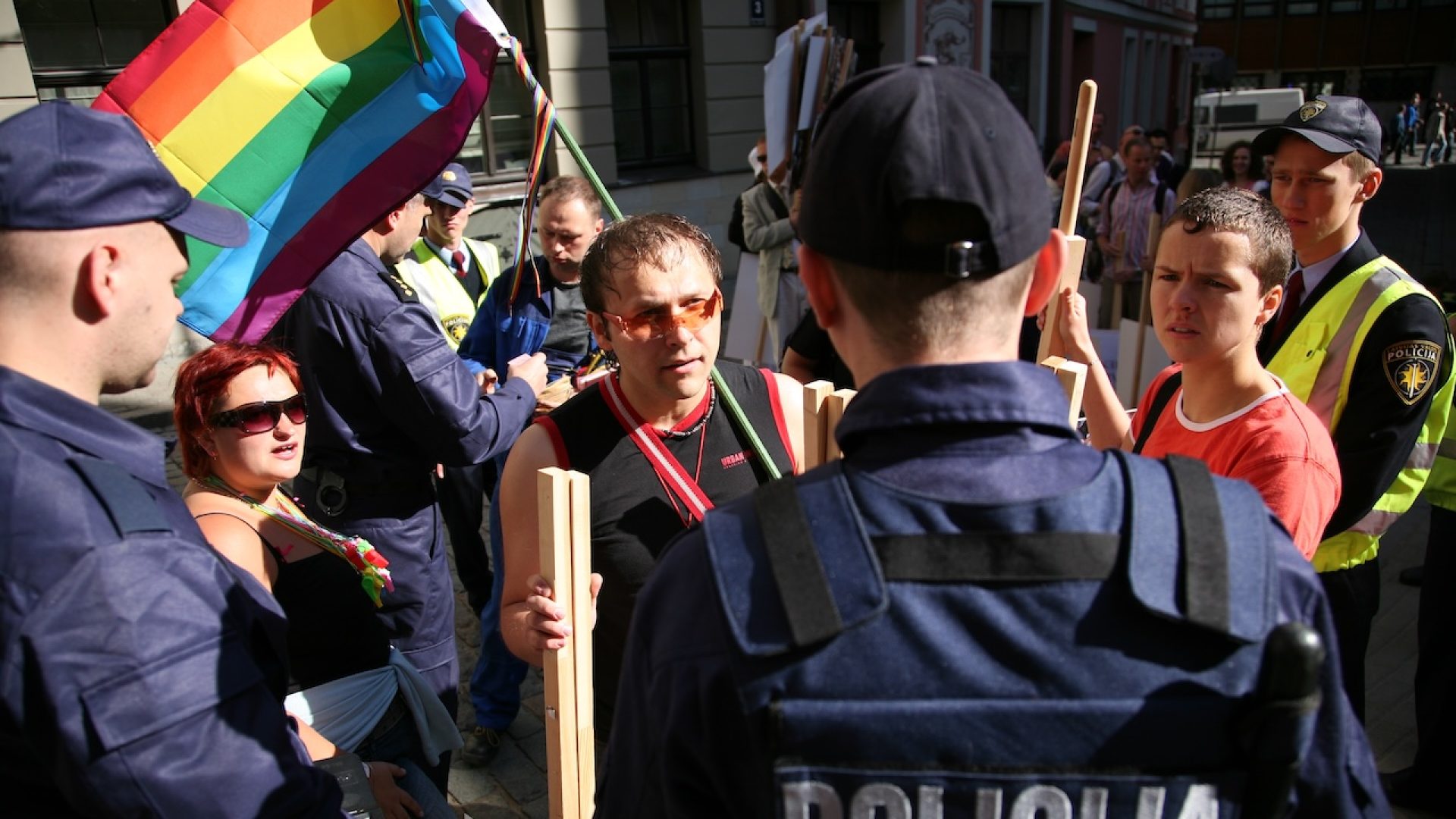Amnesty International Presents: Pride as Celebration and Protest

Pride as a grand celebration of the LGBTI+ community? Perhaps in our country, but that’s not the case everywhere. How do Pride Parades look like in countries where they are banned by the state? What is life like for LGBTI+ individuals in these places? In our discussion, we will revisit the origins of Pride Parades and remind everyone that Pride is fundamentally a protest. With international guests from Russia and Turkey, we will explore how Pride (doesn’t) take place in their home countries.
Host
Dominika Píhová – a writer at Deník N daily newspaper, specializing in in-depth interviews with academics and experts worldwide, as well as reporting and investigative work both in the Czech Republic and internationally. Over the past two years, she has focused on the war in Ukraine, traveling there regularly. Before joining the editorial staff, she studied journalism with a focus on war and conflict at universities in Denmark and the UK.
Guests
Joanna Rostkowska – originally from Poland, is a campaigner in Amnesty International Poland specializing in the freedom of assembly and LGBTI rights. Coordinator of the human rights observation in Poland and an assembly observer since 2017, experiencing among others heavily attacked Equality March in Bialystok in 2019. With over 8 years of experience in human rights activism. Previously working in non-formal cultural and anti-discrimination education in Finland and Poland. Coordinating youth exchanges. Published author. Graduated from European Studies at Warsaw University. In her free time she enjoys juggling and walks with her dog
Maxim Olenichev – originally from Russia, is a lawyer specializing in LGBTI+ rights. He serves as a legal advisor to Russian LGBTI+ initiatives and has represented LGBTI+ individuals in Russian courts for over 12 years. Maxim has authored several analytical reports on the situation of LGBTI+ people in St. Petersburg and across Russia, including those documenting the period following the Russian invasion of Ukraine. He organizes and leads strategic legal cases to defend LGBTI+ rights in national courts, the European Court of Human Rights, and UN committees. For example, in early 2018, he defended participants of St. Petersburg Pride who were detained by police for peacefully demonstrating in support of LGBTI+ rights. In 2021, Maxim was placed on the register of “foreign agents” in Russia due to his legal work defending the rights of LGBTI+ individuals.
Entrance fee – free
Event accessibility – suitable also for teenagers
Vibe check – quiet event (no loud music, shouting, etc.), seating options, indoors
Trigger warnings – police violence
Organizer – Amnesty International